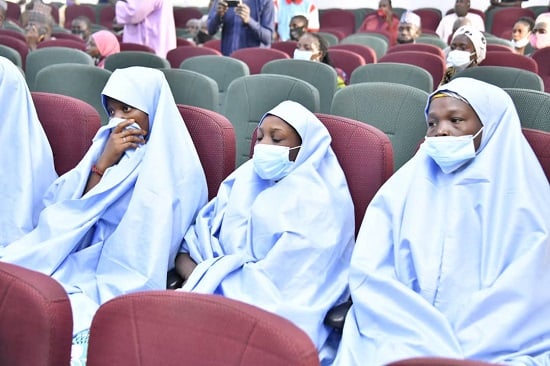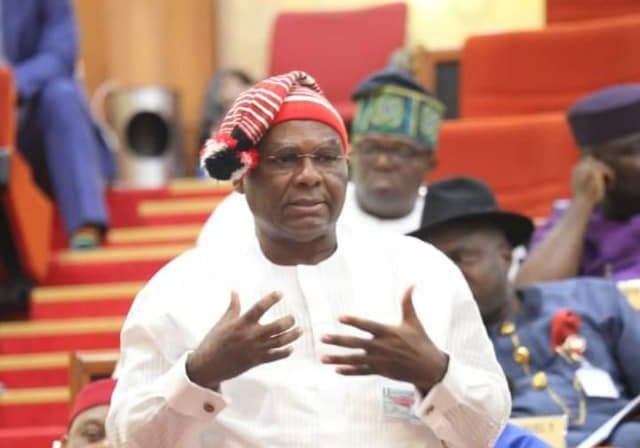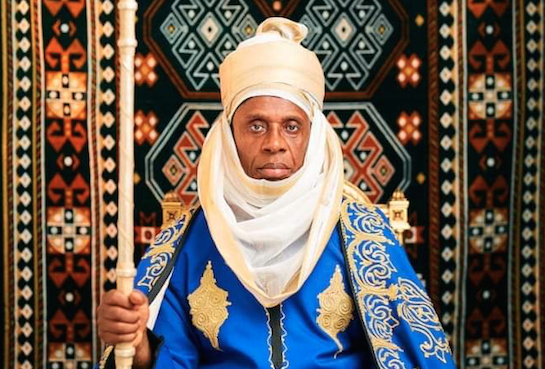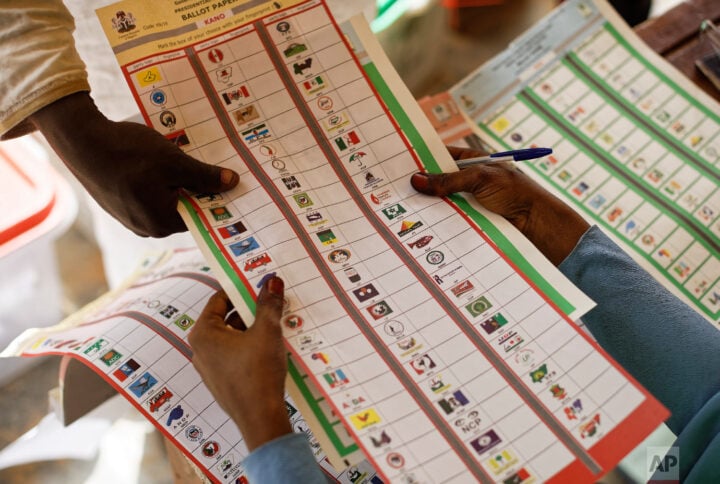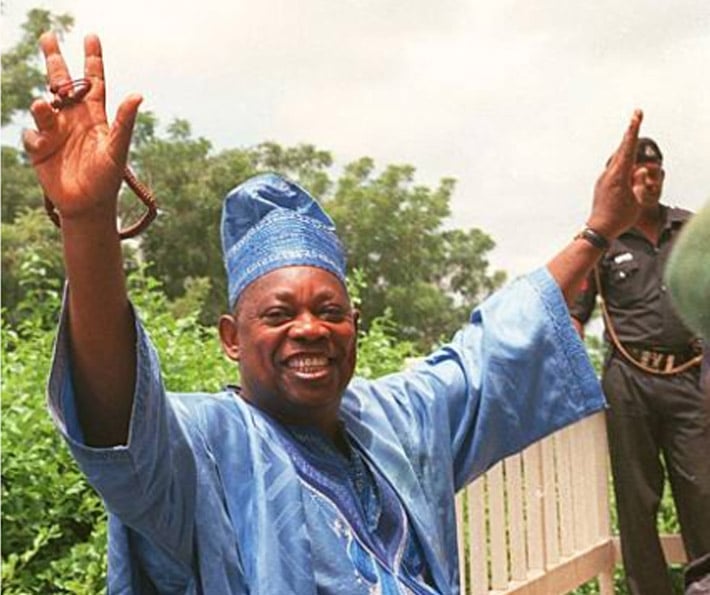On February 25, 2014, terrorists violently attacked Federal Government College Buni Yadi in Yobe state. The school buildings were razed to the ground and 59 schoolboys were murdered in the most vicious ways. No group claimed responsibility for the attack. Islamic militants, Boko Haram, are suspected to be behind the attacks. No arrests have been made so far and the parents of these children are yet to get any form of justice. On 15 April 2014, Boko Haram attacked Government Girls Secondary School, Chibok, in Borno state and kidnapped 276 female students aged 16-18. Subsequently, the hashtag #BringBackOurGirls became a global trend as the rest of the world joined Nigerians to ask the government to ensure the safe and timely return of the girls. Interestingly, because of failing security in the state, the school had closed before the attack but the girls returned to write their final exams. Some of the girls escaped immediately by jumping off the trucks during their transportation, the Nigerian Army rescued some on different occasions, some are believed to be dead, and a large number of them remain missing.
In 2021, Deborah Okezie shared a video on her Facebook account where she alleged that her 11-year-old son was starved and molested by senior pupils in Deeper Life High School, Uyo, Akwa Ibom state. She claimed that the principal of the school moved her son to the senior students’ hostel for urinating on his bed. Rather than protect this child, who could have been wetting the bed for any reason, the principal exposed this child to abuse. She claimed that the senior students molested her little boy by pushing their hands and legs into his anus. The mother stated that her son told her that the senior students threatened to kill him if he reported to the principal or his parents.
Despite several appeals for justice, the school authorities consistently ignored this mother until she went on social media to cry for help. The hashtag #JusticeforDonDavis began to trend as the rest of the country called out the school’s management, the police, and state authorities for justice.
Currently, five officials of the Deeper Life High School, Uyo faced arraignment before the magistrate court in Uyo. Also arraigned were two SS1 students of the school, both of them 13 years old.
Advertisement
In June 2021, a 14-year-old student of Premiere Academy, Lugbe, Abuja, following an alleged rape, passed away. Her mother, Vivien Akpagher, asked the federal government to come to her aid and resolve the puzzle surrounding the death of her daughter. Soon after, another hashtag began to trend, #JusticeforKeren. At a press conference, she tearfully stated: “I named my daughter Keren-Happuch, which means God has filled my cup, but Premiere Academy, Lugbe took the cup, emptied the water, and broke the cup. The cup I gave to Premiere Academy was full, they returned it to me empty and broken. This is too much to take. My heart is in turmoil.” Keren’s mum had removed her daughter from school after she had complained of feeling sick. Three days after, Keren died in the hospital. The hospital discovered that she was raped. A condom was found in her vagina and her urine contained sperm. The condom was left there for days. This caused an infection that resulted in sepsis. Keren slipped into a coma and died. Even after several protests, awareness walks, and press conferences to ask state authorities to hold responsible parties accountable, no specific actions have been taken to ensure Keren and her family gets justice. The school continues to dismiss the claim that she left the school sick.
The death of 12-year-old Sylvester Oromoni, a student of Dowen College, Lekki, Lagos, sparked outrage online. He was allegedly bullied and beaten to death by other students at the boarding school. A viral video shared by the family had shown how Sylvester was writhing in pain while bleeding from his mouth. His lips appeared swollen and his teeth looked broken. According to one of his relatives, the deceased mentioned the names of five persons, whom he said were allegedly responsible for his injuries before he finally died on November 30 2021.
In its response to the student’s death, the school’s authorities claimed the deceased sustained injuries while playing football and was given immediate medical attention by the resident nurse. The school denied that Sylvester had been bullied or attacked by some students in the school. They claimed that they conducted a preliminary investigation and there was no case of bullying. Another hashtag began to trend, #JusticeforSylvester. The public joined Sylvester’s family to demand that the persons directly or indirectly responsible for the child’s death should be held accountable. However, following the findings of a recent autopsy report, the police stated that there was no evidence of torture or bullying. Sylvester’s family has kicked against the autopsy report, alleging that there is foul play involved. Sylvester’s family lost a son, nephew, and brother and they continue to seek justice.
Advertisement
In December 2021, Abdulmalik Tanko, the proprietor and teacher of five-year-old Hanifa Abubakar, kidnapped her. After kidnapping her and collecting N100, 000 as part of the N6 million ransom he had demanded, he allegedly killed her with rat poison. Upon his arrest, he claimed that he had to kill her because she recognised him. He mutilated Hanifa’s body and buried her remains in the school’s premises in the Nassarawa local government area of Kano state. The Kano state government closed down the school after Tanko’s arrest. In January 2022, angry youth set the private school run by Tanko on fire. Before this action, the hashtag #JusticeforHanifa was trending. Again, the public went online to express outrage at the death of the sweet innocent child and demanded justice.
LAWS GUARANTEEING THE PROTECTION OF CHILDREN
As Nigerians, we are unendingly inundated with news about violence perpetrated against our children. If it is not a story of rape, it is one of sexual abuse. In addition, we hear about their violent murder, at other times there are stories of children who are trafficked and tortured.
The United Nations Convention on the Rights of the Child — an international agreement among countries to protect children’s rights — established the importance of all the rights of children and the responsibilities of government. The convention established that civil, political, economic, social, health and cultural rights are all connected and equally important.
Advertisement
Countries that have ratified this convention are bound by international laws. Nigeria has signed on and ratified the convention. To address children’s rights within the region, the African Charter on the rights and welfare of the child was adopted in 1990 and came into force in 1999. Like the UN convention, the charter sets out rights, defines universal principles and norms for the status of children in Africa. It also sets out the civil, political, economic, social, health and cultural rights of children. The charter is a powerful tool to hold governments accountable for violence against children.
Article 4 of the charter obliges state parties, persons, and authorities to make primary considerations towards the best interest of the child when taking actions concerning children. Article 16 also obliges state parties to the charter to take specific legislative, administrative, social and educational measures to protect the child from all forms of torture, inhuman or degrading treatment and especially physical or mental injury or abuse, neglect or maltreatment, including sexual abuse. Protective measures under this Article include effective procedures for the establishment of special monitoring units to provide the necessary support for the child and for those who have the care of the child.
The 1999 Constitution of the Federal Republic of Nigeria states that for international law to take effect, Nigeria’s legislature must create a national version. To domesticate the UN Convention and the African Charter, Nigeria adopted the Child Rights Act in 2003. Furthermore, the act in section 3 extends the rights provided for in the 1999 constitution to children. This law places an obligation on the Nigerian government to ensure the implementation of these treaties and laws in a comprehensible and uniform way. Section 1 of the act provides that the best interest of a child should be the primary consideration in all actions undertaken by individuals, public, or private bodies. Section 2 provides that a child should be given the protection and care necessary for their wellbeing.
Taking into account the rights and duties of the child’s parents, legal guardians, or other individuals, institutions, services, agencies, organisations or bodies legally responsible for the child, it goes on to provide that every person, institution, service, agency, organisation and body responsible for the care or protection of children shall conform with the standards established by the appropriate authorities, particularly in the areas of safety, health, welfare, number and suitability of their staff and competent supervision.
Advertisement
The right to dignity of the child is also provided for in the act. No child shall be subjected to physical, mental or emotional injury, abuse, neglect or maltreatment, including sexual abuse; no child should be subjected to torture, inhuman or degrading treatment or punishment… while in the care of a parent, legal guardian or school authority or any other person or authority having the care of the child.
PREVALENT CHALLENGES
Advertisement
Our federal system of government does not allow the applicability of the act in the 36 states because legislating children’s issues are reserved for states. Each state’s legislature must make the act applicable within its territory and only 25 of the 36 states in Nigeria have domesticated the Child’s Rights Act. The 11 states yet to domesticate the act include Kebbi, Kano, Katsina, Sokoto, Jigawa, Zamfara, Bauchi, Yobe, Gombe, Borno and Adamawa. Sadly, the government is failing in its commitment to international, regional and national laws in the protection of the Nigerian child.
In a report released by a commission convened by the World Health Organisation (WHO), UNICEF and The Lancet, Nigeria ranked in the bottom 10 for performance on child flourishing. The ranking is based on factors including measures of child survival and wellbeing, such as health, education, nutrition, equity and income gaps.
Advertisement
The report, A Future for the World’s Children ranked Nigeria 174 out of 180 countries, above Afghanistan, Sierra Leone and South Sudan. According to the report, children in Norway, The Republic of Korea, and the Netherlands have the best chances at survival and wellbeing, while children in the Central African Republic, Chad, Somalia, Niger and Mali face the worst odds. The bottom 10 on the child flourishing index, according to the report were: The Central African Republic, Chad, Somalia, Niger, Mali, Guinea, Nigeria, South Sudan, Sierra Leone and Afghanistan.
WHAT’S THE WAY FORWARD?
Advertisement
Hundreds of children have been abducted from their schools by armed men. Many of these children have not yet been returned. One cannot imagine the turmoil, pain, and fear their families suffer while they remain unfound. Condemnation of these acts of violence is not enough, more children face worse conditions if perpetrators of violence are not held accountable by the law.
Nigerian children need to live in safety, they should be able to go to school, fetch water, and even walk down the road without the fear of being attacked, killed, raped, or taken from their families. At what point do we say no more hashtags, at what point do state authorities, educational institutions, and security apparatus in the country prioritise the safety of our children in schools? How accessible is justice in Nigeria? Is it access to justice or access to remedies we lack in Nigeria? What are the clogs in the existing justice framework that make it difficult for families of children to get justice? How dispensable is a child’s life in Nigeria?
State authorities, law enforcement, the private sector, and the civil society that are meant to create and ensure safer spaces for our vulnerable population should make concerted action. The government needs to establish partnerships that create consequences for actions that put children at risk in our schools.
It is not enough to blame leadership on the lack of protection Nigerian children suffer; this only makes us avoid taking responsibility for our children. We have all failed the Nigerian child. There is a common saying that the worst pain anyone could ever experience is the loss of a child. No one would ever wish that on his or her enemy. It is a terrible thing to bury a child.
We must save the future of our country and our educational institutions by acting. We have done enough talking; we have established enough investigative committees and commissions of enquiry. Our schools are unsafe because we have not prioritised the safety of our children. Parents do not listen to their children whenever they ask them for help, government authorities are quick to dismiss claims, and even when the perpetrators of violence are known, victims do not get justice. Lengthy judicial processes, corruption, and other gaps in our weak mechanisms in Nigeria have allowed injustice to thrive. Do we need more policy meetings? Do we need to remind ourselves of our humanity?
Our children’s lives are just as important, if not more important than ours. We must collectively protect them. We must remind them that they are safe in any space.
And this will require collective willingness to do the right thing and sincerity of purpose.
Tsema Yvonne Ede is a lawyer with several years’ experience in human rights, conflict & dispute resolutions, governance, and gender. She can be reached via [email protected]; [email protected]
Views expressed by contributors are strictly personal and not of TheCable.

